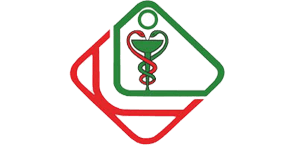
IUI
Yazd Madar Gynecology and Obstetrics (OB / GYN) Single-Specialty Hospital
IUI (Intrauterine Insemination)
Nursing Instruction Unit of Madar Hospital
- Definition
IUI (Intrauterine Insemination) means the injection of washed sperm using a very narrow catheter (thin tube) through the cervix into the uterine cavity. This process is called artificial sperm insemination. The specialist increases the chances of pregnancy by increasing the sperm-ovum collision.
This is one of the simple methods that does not take more than a few minutes and is used in the treatment of infertility.
- IUI is a Useful in the following Cases and is Recommended by a Attending physician:
- If the Post Coital Test (PCT) of the cervix is not suitable for sperm penetration, or if the amount of mucus is low and harmful for sperm.
- When the husband has antibodies against his sperm, suitable sperms that have not been affected by antibodies are isolated in the laboratory and used for IUI.
- When the husband is unable to ejaculate inside his wife’s vagina, this condition occurs due to psychological disorders such as impotence (Erectile Dysfunction), Vaginismus (involuntary muscle sperm interferes with vaginal intercourse and make it impossible), Urogenital Anomalies, such as modified hypospadias or men with paralysis of the lower limbs.
- In the case of low male fertility (abnormal sperm morphology), sperm quality is improved by IUI and the chance of pregnancy increases.
- Intrauterine Insemination (IUI) Treatment Procedure
Since it is necessary to increase the potential fertility in a woman, it means to increase it to 2 or 4 ova instead of releasing one ovum per cycle; it is needed to use ovulation induction drugs.
Taking the Clomiphene and Letrozole is from the third to the seventh day of menstruation. The number and type of medicine is determined by the attending physician. Ovulation induction ampoules are also prescribed to the client on the determined days depending on the attending physician’s opinion. (Prescribed medicines and ampoules must be kept in the refrigerator, but not frozen). Then, on the specified day, the client should go for sonography. In vaginal sonography the growth and size of the follicle is controlled, and vaginal sonography may be done every one or two days until IUI is performed. (A follicle is a sac containing a ovum, and based on the size of these sacs, the growth rate of the ovum is estimated). At the time of the menstrual cycle when the follicles are grown and considered mature, the attending physician prescribes HCG ampoules based on sonography results. (This ampoule releases the ovum). After 24 to 36 hours of injecting the HCG ampoule, it is time to do IUI.
It should be noted that on the day of visiting the hospital, a copy of the first and second page of the birth certificate along with its original is necessary.
On the day of the visit, after abstaining from sex for 2-4 days, the husband collects his semen in a clean container provided by the laboratory in a private room in the clinic by masturbation. That sample is delivered to the laboratory for washing and preparation. Sperm must be separated from semen, because direct injection of whole semen is not wise, and contains various chemicals such as prostaglandins and pus cells and causes uterine pain and even tubal infection. Since it takes time to prepare the sample in the laboratory, it is necessary to collect the sample one to two hours before the IUI.
It should be mentioned that 48 hours must be left between the last ejaculation and sperm collection. If there is no problem with the sperm, sex in the last 24 hours will not be a case either.
During IUI, the woman lies on the examination bed and the speculum is placed in her vagina. The specialist injects sperms into the uterus using a thin plastic tube called a catheter. Performing IUI feels like a regular women’s examination or taking a sample from the cervix, and the passing the catheter through the cervix usually does not cause pain, because it is very thin and also slightly open during ovulation. Sometimes, a number of specialists do sperm insemination again after 24 hours.
After IUI, most specialists suggest sex between couples, but if bleeding occurs during IUI, the patient is asked not to have sex for 48 hours. The sperm will not come out after entering the uterus, but the secretions that the patient feels are due to the passage of cervical mucus ( cervical secretions) and are not worrisome at all. After IUI, there is no need to hospitalize the patient, but most specialists put the patient to sleep 30 to 60 minutes after doing it. The patient does not need absolute rest and can do her normal and daily activities as before.
The success of IUI depends on several factors. The most important factor in the success of IUI is to diagnose the cause of infertility of the desired couple. For example, men who have sufficient sperm count but are unable to be sexually active, have more success than those who have to use IUI due to low sperm count. On the other hand, the cause of women’s diseases will also play an important role in this field. A woman over 35 years old has a significantly reduced chance of pregnancy.
Two weeks after the IUI operation, the level of the BHCG blood hormone is measured and if the test is positive, the patient is referred to the infertility ward, extension 234, to inform about her positive test every morning from 9 o’clock, and if it is negative and no pregnancy, to continue the treatment, contact the clinic to determine the next visit.
- IUI Post-Operative Cares
- Not resting after IUI and dealing with daily life
- Avoiding the consumption of puffy food and using more fruits and vegetables (remember that no type of food is prohibited.)
- Doing a blood test on the 14th day after IUI operation
- Avoiding stressful, anger and concern factors
- Not taking painkillers, but in case of pain in the lower abdomen, avoid taking drugs such as Ibuprofen and Naproxen and use Acetaminophen due to the specialist’s opinion.
- Using progesterone suppositories with the diagnosis and prescription of a specialist, vaginally and lying down. (If part of medicine is excreted in liquid form, no need to worry.
- Increasing vaginal secretions possibly due to the effect of the catheter on the outer layer of the uterus after IUI (In this case, it is not necessary for the patient to be placed in special positions, such as raising the legs and so on, because the sperm does not come out after entering the uterine cavity.
 loading...
loading...![[company]](https://madarhospital.com//upload/logo-1575530599.jpg)



































